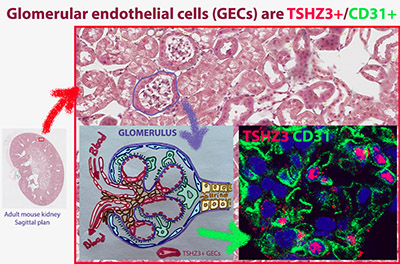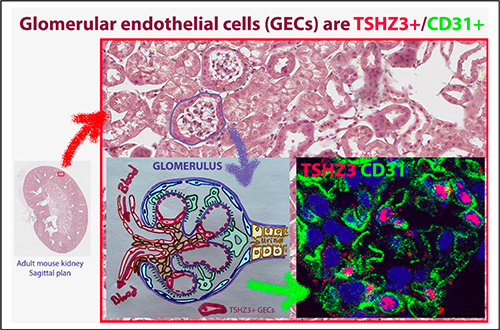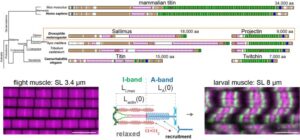 Laurent Fasano’s team previously reported that renal tract and kidney defects as well as autism spectrum disorder deficits represent the phenotypic core of the 19q12 deletion syndrome caused by the loss of one copy of the TSHZ3 gene. In this study, they characterized TSHZ3 expression in the adult mouse kidney, in particular in the glomerular endothelial cells. The authors found that Tshz3 haploinsufficiency leads to molecular, morphological and functional kidney defects, including abnormal gene expression, reduced glomerular density and modified urinary peptide signature paralleled by abnormal blood electrolytes. Combined with our previous findings, these data confirm that Tshz3 heterozygous mice constitute a model that replicates many of the clinical problems reported in patients with TSHZ3 heterozygous conditions.
Laurent Fasano’s team previously reported that renal tract and kidney defects as well as autism spectrum disorder deficits represent the phenotypic core of the 19q12 deletion syndrome caused by the loss of one copy of the TSHZ3 gene. In this study, they characterized TSHZ3 expression in the adult mouse kidney, in particular in the glomerular endothelial cells. The authors found that Tshz3 haploinsufficiency leads to molecular, morphological and functional kidney defects, including abnormal gene expression, reduced glomerular density and modified urinary peptide signature paralleled by abnormal blood electrolytes. Combined with our previous findings, these data confirm that Tshz3 heterozygous mice constitute a model that replicates many of the clinical problems reported in patients with TSHZ3 heterozygous conditions.
To know more :
Contact




